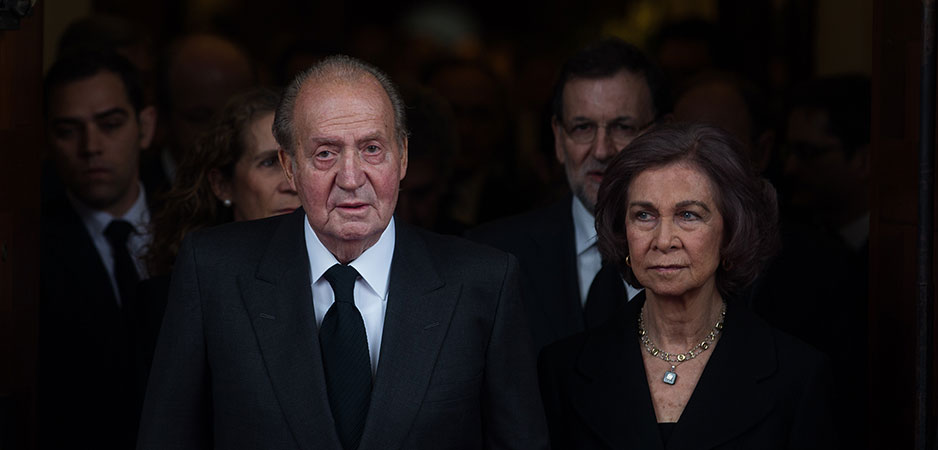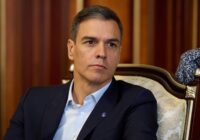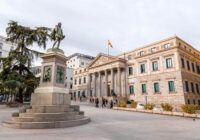The former king of Spain, Juan Carlos de Bourbon, is facing growing allegations of corruption from Spanish public prosecutors. The current scandal will have an unprecedented impact on the future of the Spanish monarchy, an opaque institution that has been for many years shielded from public scrutiny. The personal finances and business activities of Juan Carlos I and his associates have been a source of controversy for many years, but now Spanish prosecutors, in coordination with British and Swiss colleagues, seem to have been able to trace approximately $100 million of the former king’s shady transactions.
The 82-year-old, who reigned as the head of the Spanish state for 39 years until his abdication in favor of his son, King Felipe VI, in 2014, will likely face charges for money laundering and tax evasion and has left Spain, announcing that he is now permanently residing in the United Arab Emirates. This move, which was backed by the royal household and the current Spanish government, raises concerns about whether Juan Carlos is attempting to avoid justice in case charges are formally pressed against him in Spain.
Corruption Allegations
The scandal is putting the Spanish royal family in the spotlight while the country is trying to recover from the negative effects of the COVID-19 pandemic and a deep economic crisis. King Felipe has been trying to contain the damage of the scandal by striping the former monarch of his royal title and by renouncing his father’s inheritance. Yet these actions seem to be innocuous in reducing the pressures on the monarchy. The loss of public faith in the Spanish monarchy, a key institution for the consolidation of democracy in Spain, could potentially trigger a systemic institutional crisis given that over the past decade there has been a succession of scandals involving the political elites and critical public institutions.
Currently, the Spanish supreme court is focusing its probe against the former king on a generous “donation” of approximately $100 million from the former Saudi king to Juan Carlos. This donation appears to be remuneration for the alleged intermediation by Juan Carlos in a $71-billion deal for the Spanish consortium to build a high-speed rail link connecting Mecca and Medina in Saudi Arabia. Swiss prosecutors tracked the Saudi money and suggest that Juan Carlos sent part of the “donation” to an offshore account and the other part was given as a gift to his former lover, Corinna Larsen, a German businesswoman.
There are suspicions that this newest scandal is just the tip of the iceberg. Yet bringing members of the monarchy to justice is not easy in Spain provided they enjoy legal immunity from prosecution in the lower courts. Another difficulty of holding Spanish royals accountable is that they benefit from a network of allegiances in business and political circles.
For example, in response to the recent wave of criticism in the media against the alleged role of the former Spanish monarch in the corruption scandal, approximately 70 high-profile politicians, professionals and businesspeople signed a letter in defense of Juan Carlos. In essence, the letter suggests that the disapproval Juan Carlos is currently facing in light of the most recent corruption scandal is unjust given his contributions to the Spanish democracy, stating that “the work of King Juan Carlos for the benefit of democracy and the Nation can never be erased, on pain of a social ingratitude that would not bode well for Spanish society as a whole.”
The political and economic elites in Spain abhor any revisionism of the monarchy because they equate any criticism of its institution with endangering democracy. However, openly debating the role of a country’s institutions is healthy for any democratic regime.
The Monarchy and Democratization
Spain formally became a constitutional monarchy in 1978 when the country transitioned to democracy, becoming the only European democracy in the Mediterranean to have a monarch as its head of state. This exceptionalism allowed the Spanish monarchy to exercise an important symbolic power in the maintenance of the constitutional order and political stability in democratic Spain.
Juan Carlos I acceded to the throne in 1975 at the hands of dictator Francisco Franco, who ruled Spain through fierce repression for almost four decades, between 1939 and 1975. In the 1970s, with the growing sociopolitical pressures for democratization, Franco envisioned the newly-enthroned royal overseeing the country’s transition to democracy. In effect, Juan Carlos would exercise a tutelage role over political and institutional dynamics in the newly democratic Spain.
In a rare historical moment, King Juan Carlos, although politically neutral as a head of state, exercised his symbolic role as a guarantor of democracy when he took to the airwaves to publicly condemn an attempted military coup in February 1981. His televised address won him wide prestige among the Spanish public, and to this today, the former king is considered one of the key actors in the transition and consolidation of Spanish democracy.
Despite the widely recognized role of the Spanish monarchy in building a democratic Spain, the country has changed in recent decades, as has public support for the monarchy. Based on the Ipsos Global Advisor’s 2018 survey, the Spanish royals have one of the lowest levels of public support of all the world’s monarchies. Fully 37% of the Spanish public believes the country would be better off abolishing the monarchy, compared with just 15% in Britain or merely 4% in Japan.
Time for Reform
The 2010-14 economic crisis and the deepening of secessionist tensions in Catalonia detracted from the symbolic power of the Spanish monarchy. The public image of Juan Carlos has also suffered from scandals, such as his 2012 elephant-hunting trip to Botswana while he was presiding over the Spanish branch of the World Wildlife Fund. At the height of the 2008 economic crisis, members of the royal family were found entangled in a web of corruption involving the misuse of public funds amounting to approximately $7 million, which eventually led to the conviction of the king’s son-in-law for embezzlement.
When King Felipe VI replaced his father on the Spanish throne in 2014, the separatist tensions in Catalonia were only beginning to escalate. Just three years later, however, the Spanish crown would have to act to ease the growing territorial crisis. In October 2017, when a group of Catalan politicians was in the process of declaring the independence for Catalonia through an illegal referendum, King Felipe addressed the nation on television to condemn these regional politicians for placing themselves “outside the law and outside democracy.”
In the eyes of many Catalans, this address proved the king was siding against Catalonia. Spain’s territorial secessionist crisis has profound implications for the Spanish monarchy because it challenges its unity and democratic institutions. October 2019 saw a resurgence of violent protests in Catalonia against the lengthy prison sentences imposed against nine separatist political leaders who declared, unconstitutionally, Catalonia’s independence in October 2017. During the clashes between pro-independence protesters and the police, King Felipe visited Catalonia and was received in Barcelona with great hostility.
If the stability of the Spanish monarchy were merely a function of King Felipe VI’s efforts and intentions to reign more in tune with the real concerns of the Spanish people and with a less lavish lifestyle than his father, then the current scandal involving Juan Carlos I would likely leave the monarchy unharmed. However, the future stability of the monarchy lies in the evolution of the corruption probe into the former king’s assets set against a sociopolitical environment that is becoming more complex by the day. In this context, it is becoming increasingly clear that it is time for reform of the Spanish monarchy.
The views expressed in this article are the author’s own and do not necessarily reflect Fair Observer’s editorial policy.
Support Fair Observer
We rely on your support for our independence, diversity and quality.
For more than 10 years, Fair Observer has been free, fair and independent. No billionaire owns us, no advertisers control us. We are a reader-supported nonprofit. Unlike many other publications, we keep our content free for readers regardless of where they live or whether they can afford to pay. We have no paywalls and no ads.
In the post-truth era of fake news, echo chambers and filter bubbles, we publish a plurality of perspectives from around the world. Anyone can publish with us, but everyone goes through a rigorous editorial process. So, you get fact-checked, well-reasoned content instead of noise.
We publish 2,500+ voices from 90+ countries. We also conduct education and training programs
on subjects ranging from digital media and journalism to writing and critical thinking. This
doesn’t come cheap. Servers, editors, trainers and web developers cost
money.
Please consider supporting us on a regular basis as a recurring donor or a
sustaining member.
Will you support FO’s journalism?
We rely on your support for our independence, diversity and quality.






